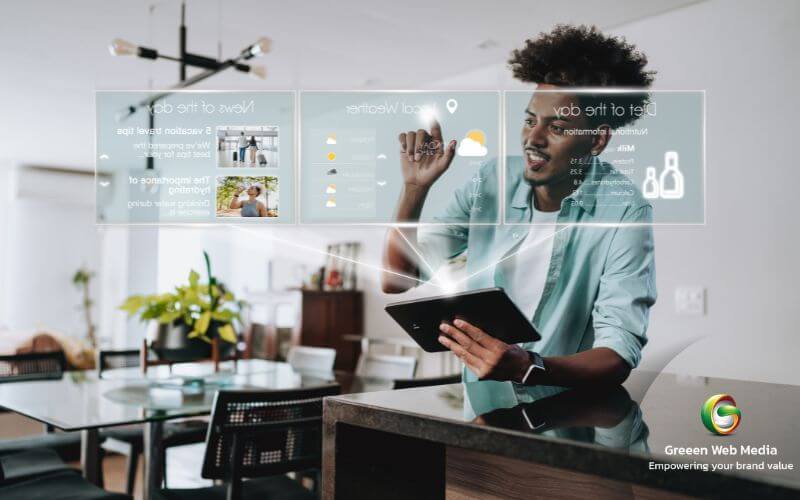Maximizing AI Visibility – How to Win Mentions & Citations in Answer Engines

The search world has changed. Google is no longer the sole player in town. ChatGPT, Claude, and Perplexity are now able to respond with complete paragraphs and not just blue links. They pull from sources that they trust and cite them in their answers. If your brand is not mentioned or cited, you just do not exist in this new world.
Rankings don’t matter anymore. Being the trusted source does. You should reconsider your content creation process and how you appear where people ask questions. The change has impacted every business, particularly those offering SEO outsourcing or on-page SEO India services. The rules have changed. It’s time to adapt or fall behind.
This blog will demonstrate precisely how to develop your SEO strategy and secure the mentions and citations that matter in the AI era.
The Two-Channel Future – Why AI and SEO Must Work Together

You can’t ignore traditional search. Google still drives billions of clicks every day. But you also can’t ignore AI engines. People now use both. They Google for quick facts. They ask ChatGPT for detailed advice.
Traditional search queries are short. Three or four words on average. AI search is different. The average prompt in ChatGPT is 23 words long. People ask full questions. They add context and expect thoughtful answers.
This changes everything. Conventional SEO relies on keywords and rankings. AI search is concerned with the context and citations. You must have both the strategies running simultaneously.
If you are working with an SEO outsourcing team in India, ensure that they are aware of this change. Your content should be compatible with AI engines as well. It must be clear, factual and organized.
Rethinking Success – Make Mentions, Citations, and Visibility a Priority
Position one doesn’t exist in the AI search. There’s no first place. You’re either cited in the response or you’re invisible. That’s the new reality.
In traditional SEO, you track rankings. AI search has a different definition of success. You track mentions and count citations. You monitor how often AI engines pull from your content.
A mention means your brand appears in the answer. A citation means your content is linked as a source. Citations are more valuable. They show trust and drive traffic.
You also need to track crawl activity. Are AI engines visiting your site? Are they indexing your content? These are the new metrics that matter.
If you’re offering on-page SEO India services, this changes your approach. You need to optimize for AI retrieval. That means you should focus on:
- Clear structure
- Strong headings
- Factual statements
Content that AI engines can easily parse and cite.
How to Earn AI Mentions and Build Source-Level Authority?

Mentions and citations are different. You need both. But they come with different strategies.
Mentions come from visibility. You get mentioned when people talk about you. PR, partnerships, social media—all of that gets your name out there. When your brand shows up in conversations, AI engines notice.
Citations come from trust. You get cited when your content is accurate, detailed, and useful. AI engines cite sources they can verify. They prefer facts over opinions.
For Mentions:
- Get featured in industry publications
- Build an active social presence
- Create shareable content
- Engage in relevant communities
For Citations:
- Publish original research
- Include data and statistics
- Create detailed how-to guides
- Keep content updated
In case you are working with SEO outsourcing companies, enquire about citation strategy. Citations in AI search require content that AI engines trust and reference.
Being mentioned is good. Being cited is better. Aim for both.
Scaling Content for AI Discovery and Reach
Five blog posts a quarter won’t cut it anymore. AI engines learn from volume. They need consistent, fresh content to pull from.
You need to scale content production. But scaling doesn’t mean burning out your team. It means repurposing.
Start with one strong piece of content. Then break it apart. Turn it into smaller pieces.
The following is how to repurpose a single blog post:
- Take key quotes for social media.
- Produce short video clips for YouTube.
- Design infographics for Pinterest.
- Write threads for Twitter
- Make carousel posts for LinkedIn.
A single blog turns into ten pieces of content. Each pieces reaches different audiences. Each piece creates more opportunities for AI engines to find you.
This matters especially for SEO outsourcing teams. Your content needs to show up everywhere. AI engines crawl social media. They scan video transcripts. The more places your content appears, the higher chances AI tools will cite you.
Scaling content does not mean working harder. It’s about working smarter. Create once and distribute everywhere.
AI Personas & Infinite Prompts – The Future of Search Personalization

Traditional SEO targets keywords. AI SEO search targets intent. And intent is personal.
Most AI prompts have a search volume of one. They’re asked once by one person and never again. You can’t optimize for specific phrases anymore.
Instead, you need to understand personas. What problems do your customers face? How do they describe those problems? Build content that addresses broad intent, not narrow keywords.
Your content must meet multi-intent needs. One piece should answer several related questions. It should work for beginners and experts.
This is especially important for services like on page SEO India or SEO outsourcing in India. Your audience asks different questions at different stages. Create content that serves all these needs.
The days of targeting one keyword per page are over. AI search favors content that answers multiple questions in one place.
How to Measure Success in the AI Era?
Conventional measures are still important. Traffic and conversions are important. But you need new metrics too.
Track brand mentions across AI platforms. Monitor ChatGPT, Claude, and Perplexity. See how often your brand appears.
You must track citations. When AI engines link to your content, that’s a win. It means they trust you.
Monitor crawl patterns. Are AI engines visiting your site regularly? This tells you if your site is on their radar.
If you’re working with an SEO outsourcing provider in India, make sure they track these metrics. Many agencies still report only on Google rankings. That’s not enough anymore.
Why Quality and Trust Are Essential in AI Search?

AI engines are picky. They don’t cite everyone. Quality matters more than ever.
Your content needs to be accurate. AI engines fact-check. If your information is wrong, they won’t cite you.
Your content needs to be detailed. Shallow posts don’t get picked up. AI engines prefer comprehensive answers.
Your content needs to be trustworthy. Link to credible sources. Cite your data and show your expertise.
This is critical for anyone offering SEO outsourcing services. Your clients need content that AI engines will trust. That means investing in quality.
You can’t game AI search. Black hat tactics don’t work here. AI engines reward good content. They ignore everything else.
In conclusion
The search world has been divided into two. Traditional search has not disappeared. But AI search is growing fast. You need a strategy for both. Pay attention to the mentions and citations, not just rankings. Scale your content intelligently by repurposing. Build for intent, not keywords. Track new metrics that show AI visibility.
Above all, quality and trust should be prioritized. AI engines encourage useful and correct content. If you work with on-page SEO India teams or are considering SEO outsourcing, make sure they know this new reality. The brands that evolve today will have ownership of the AI search results tomorrow.
FAQs

1. How do we quantify success in AI search if there are no ranking factors?
Monitor brand mentions on AI-based applications, such as ChatGPT and Perplexity. Count the number of times your content gets cited with links. Check crawl patterns to determine if AI engines are visiting your site on a routine basis. Success isn’t about landing at the top of a search page anymore. Now, it’s about showing up as a trusted source across different AI engines. That’s the real win.
2. What distinguishes citation optimization from mention optimization?
Mentions refer to awareness and visibility of the brand. You are mentioned via PR and social engagement. Citations are centered on authority and credibility. You get cited by publishing factual and detailed content that AI engines can verify. Mentions put your name in the conversation. Citations make you the professional source.
3. How can content be scaled without sacrificing quality or exhausting our team?
Start with modular content. Create one powerful piece and break it into small formats. Turn a blog into social posts, videos, and infographics. Use templates for common content types. Encourage cross-team collaborations in order to reuse content. Focus on distribution, not on creation. The quality of work remains a priority when you work smarter, not harder.






